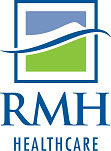– Local News: RMH experts to speak at Free Heart Symposium
– Local News: Free H1N1 shots available at RMH
– Study: Socioeconomic status can affect life expectancy
Edited by Chris Graham
[email protected]

This community event will feature free health screenings and presentations by physicians from the RMH Heart & Vascular Center and RMH Neurology on some of today’s most important heart and vascular issues. Steven Marra, MD, medical director, RMH Cardiothoracic Surgery, will give an update on the RMH cardiothoracic surgery program, and RMH neurologist Daniel Chehabar, DO, stroke care medical director, will discuss the signs, symptoms and prevention of stroke.
“Heart disease is the number one killer of men and women in the U.S.,” said Dr. Marra. “When the community needs us, we want them to know that we are offering leading-edge heart and vascular procedures at the RMH Heart & Vascular Center. We’re also here to educate the community about prevention—the best medicine.”
Many of the risk factors that contribute to heart disease also may cause stroke, added Dr. Chehebar.
“Stroke is the third leading cause of death, and the top cause of disability, in America,” said Dr. Chehebar. “Yet up to 80 percent of strokes are preventable. Knowledge truly is power in dealing with stroke. Our goal is to equip the community with life-saving preventive tools.”
Guests at the event also may meet with RMH representatives and receive free blood pressure screenings. Refreshments will be served.
The JMU Festival Conference and Student Center is located at 1301 Carrier Drive, off of University Boulevard.
Registration is required by calling RMH HealthSource at 540.433.4850.

Vaccinations are free with a non-perishable food item donation to the Blue Ridge Area Food Bank. The free shots are available to those ages six months and up.
Walk-ins are accepted during the following times in March:
– Every Tuesday, 8 a.m.-2 p.m.
– Every Thursday, 10 a.m.-4 p.m.
– Saturdays (March 6 and 13 only), 10 a.m.-2 p.m.
Influenza is unpredictable, and the likelihood of a future wave of H1N1 influenza is unknown, according to the Virginia Health Department. But having more people vaccinated means less worry for everyone about future waves of H1N1 disease, notes the VDH.
“Vaccination is the best way to protect yourself against both H1N1 and seasonal flu viruses,” said State Health Commissioner Karen Remley, MD.
The RMH Flu Clinic is located at 51B Burgess Road (behind Shoney’s).

“It’s tempting to assume that our findings are based on how much money people make,” Woolf said. “But areas with high household incomes also tend to have better schools, a different racial and social mix and healthier community conditions.”
In the study to be published in the April issue of the American Journal of Public Health and available online today, Woolf and his colleagues analyzed census data and vital statistics from Virginia counties and cities between 1990 and 2006. They demonstrated that one out of four deaths would have been averted if the mortality rates of Virginia’s five most affluent counties and cities had existed statewide. In some of the most disadvantaged areas of the state, nearly half of the deaths would have been averted.
“Virginia is an excellent place to explore the connection between health and median household income. There are communities in Northern Virginia with some of the highest incomes in the nation and there are areas of the state, such as the Appalachian Southwest, Southside, the Middle Peninsula and the Eastern Shore, with high poverty and low high school graduation rates,” Woolf said.
Regions of the state with deep poverty, large minority populations and lower educational achievement levels had high mortality rates in comparison with high household incomes.
“These findings are especially timely during the current recession. Policymakers typically think of the economy, jobs and education as separate issues from health care reform, but they’re deeply connected,” Woolf said. “Social care is health policy, probably saving more lives than anything done in health care.”
For the entire study and other American Journal of Public Health April issue articles, visit http://ajph.aphapublications.org/first_look.shtml.










